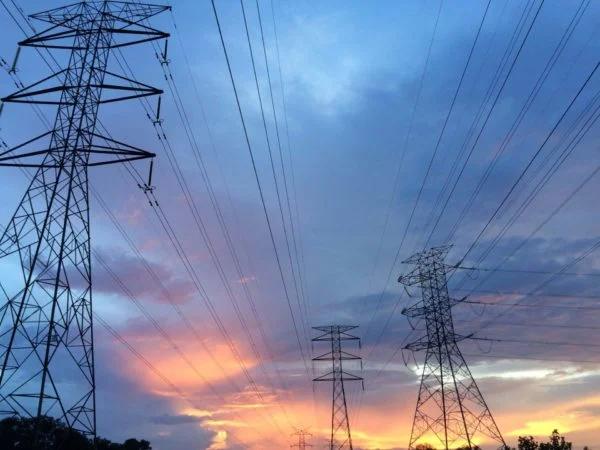
Government Incentives: A Bright Future for Solar Energy Users
Are you ready to unlock the full potential of solar energy and maximize your savings?
Solar power is not just a clean, renewable energy source—it’s also a smart financial investment. Thanks to government incentives, switching to solar has never been more affordable or rewarding.
In this article, you’ll discover how federal and state incentives, net metering, and Solar Renewable Energy Credits (SRECs) can help you save money while contributing to a greener planet. Let’s dive in!
Disclaimer: This article provides a simplified explanation of solar energy incentives and is intended for informational purposes only. It does not constitute professional tax, legal, or financial advice. Incentives, policies, and eligibility requirements may vary based on your location and individual circumstances. For personalized guidance, consult a tax professional, solar energy expert, or refer to official government resources such as the IRS website or the DSIRE database.

Federal Incentives
What is tax credit?
A tax credit is like a coupon that can be used to pay your taxes. It’s an amount of money that you can subtract directly from the taxes you owe. This is different from tax deductions, which lower the amount of money you earn that can be taxed. So, if you owe $1,000 in taxes and you have a $200 tax credit, you would only have to pay $800.
Federal Solar Tax Credit

The federal solar tax credit, also known as the Investment Tax Credit (ITC), is one of the most significant incentives for solar energy users. Here’s how it works:
- When you install a solar energy system, you can claim a percentage of the installation cost as a credit on your federal taxes.
- As of 2023, the credit is 30% of the total system cost. For example, if your solar system costs $10,000, you will receive a $3,000 credit.
- There’s no cap on the credit amount, meaning even larger systems qualify for substantial savings.
Pro Tip: If your tax credit exceeds your tax liability, you can carry over the remaining amount to future tax years.
Eligibility And Requirements
Eligibility and Requirements
To be eligible for the federal tax credit, you must meet the following criteria:
- Installation Timeframe: Your solar photovoltaic (PV) system must have been installed between January 1, 2017, and December 31, 2034.
- Location: The solar PV system must be located at a residence of yours in the United States
- Ownership: You must own the solar PV system, meaning you purchased it with cash or through financing.
Disclaimer
This is a simplified explanation and does not constitute professional tax advice. You can also refer to this article for more information. You can also contact us so that we can also check out what financing options are available for you through our partners.
State Incentives
State incentives for solar are like special offers from the government to encourage people to use solar energy. These offers can be different things like discounts, tax breaks, or even low-interest loans for solar projects. One example would be, if you install solar panels at home, you might get a tax break that’s based on how much you spent on the installation.
While every state has its own set of offers, some states might also give you a direct discount on the cost of the solar panels. These offers can change based on where you live.
Disclaimer: This is a simplified explanation and does not constitute professional tax advice. You can also refer to this website for more information. You can also contact us so that we can also check out what financing options are available for you through our partners.

Net-metering

Net metering is a solar incentive that allows you to store energy in the electric grid. When your solar panels produce more electricity than you need, that energy is sent to the grid in exchange for credits. Then, at night or other times when your solar panels are underproducing, you pull energy from the grid and use these credits to offset the costs of that energy. In other words, net metering is like having a 100% efficient battery that never degrades. It’s a way to balance out your production and consumption of electricity, while also getting the most value from your solar panels.
In the US, net metering policies vary by state and local utility companies, but programs are currently available in 38 states and Washington, D.C.
Disclaimer: This is a simplified explanation and does not constitute professional tax advice. You can also refer to this article for more information. You can also contact us so that we can also check out what financing options are available for you through our partners.
Solar Renewable Energy Credits (SREC’s)
If you live in a state with a solar carve-out, you can earn SRECs for the electricity your solar system generates. Here’s the breakdown:
- For every 1,000 kilowatt-hours of solar energy produced, you earn one SREC.
- Utility companies buy these credits to meet state renewable energy requirements.
- The value of SRECs varies by state and market demand, ranging from 50 to 300 per credit.
Note: Only states with renewable portfolio standards (RPS) offer SREC programs. Check your state’s policies to see if you qualify.
Disclaimer: This is a simplified explanation and does not constitute professional tax advice. You can also refer to this article for more information. You can also contact us so that we can also check out what financing options are available for you through our partners.
Conclusion
Switching to solar energy in Connecticut isn’t just good for the planet—it’s great for your wallet too. With federal tax credits, Connecticut solar incentives (like the Solar Investment Program), net metering, and SRECs (Solar Renewable Energy Certificates), the financial benefits are undeniable.
At Prime Energy Solar, the industry-leading solar company in Connecticut, we’re here to make your transition to solar panels in CT seamless and rewarding. Whether you’re a homeowner in Hartford, Stamford, or New Haven, our team specializes in residential solar installations tailored to Connecticut’s climate and energy needs.
Sources
- https://www.investopedia.com/terms/t/taxcredit.asp
- https://www.energy.gov/eere/solar/homeowners-guide-federal-tax-credit-solar-photovoltaics
- https://unboundsolar.com/solar-information/state-solar-incentives
- https://www.solarreviews.com/solar-incentives
- https://www.marketwatch.com/guides/solar/solar-net-metering/
- https://www.energysage.com/solar/srecs/
Articles you might like
Check out our other pages
Need assistance?
- Contact us here
- Call us – 203-408-2440
- Business Hours – 9am to 5pm Mon-Fri
FAQ
Check out our government incentive here.
Disclaimer: The information provided here is for general reference only and should not be considered legal, financial, or tax advice. Solar incentives vary by location and may change over time. For the most accurate and up-to-date details on local incentives in Connecticut, consult the Connecticut Green Bank or official sources such as the Solar Energy Industries Association (SEIA) and U.S. Department of Energy. You may also check with your local solar installers for more information.
Governments offer various incentives to encourage solar adoption, including:
- Federal tax credits (e.g., the U.S. Solar Investment Tax Credit)
- State and local rebates (cash-back incentives for installation)
- Property tax exemptions (excluding solar panels from property tax assessments)
- Performance-based incentives (PBIs) (payments for energy produced)
- Solar Renewable Energy Certificates (SRECs) (sellable credits for solar generation)
- Net metering (credits for excess energy sent to the grid)
These incentives help reduce upfront costs and improve long-term savings.
In the U.S., the Federal Solar Investment Tax Credit (ITC) allows homeowners and businesses to deduct 30% of their solar system’s total cost from federal taxes. This includes expenses for panels, labor, and installation. The ITC applies through 2032, then drops to 26% in 2033 and 22% in 2034 before expiring for residential systems in 2035. There is no maximum limit, making it especially valuable for large installations.
State incentives vary but commonly include:
- Cash rebates(e.g., California’s SGIP, Massachusetts’ Mass Save)
- Additional tax credits(e.g., Arizona’s 25% state tax credit, up to $1,000)
- Low-interest solar loans(e.g., New York’s NY–Sun program)
- Sales tax exemptions(e.g., Texas waives sales tax on solar equipment)
- Performance-based incentives (PBIs)(payments per kWh generated)
Check your state energy office or DSIRE (Database of State Incentives for Renewables & Efficiency) for local programs.
Solar panels increase home value, which could lead to higher property taxes. However, many states (e.g., Texas, Florida, New Jersey) offer property tax exemptions, ensuring the added value from solar does not increase your tax bill. This makes solar more affordable over time.
SRECs are credits you earn for every 1,000 kWh of solar electricity your system generates. In states with Renewable Portfolio Standards (RPS), utilities have to buy these SRECs to meet their clean energy goals. Homeowners can sell SRECs on the market, which can mean extra income—sometimes $100 to $400 per SREC, depending on where you live.
Contact Us
25 Eastern Steel Road
Milford, CT, United States
(+1) 203-408-2440
info@primeenergysolar.com
marketing@primeenergysolar.com
If you are a reporter looking for information on media services please contact us at:
marketing@primeenergysolar.com
